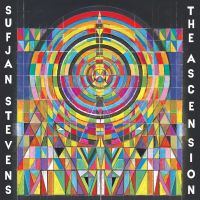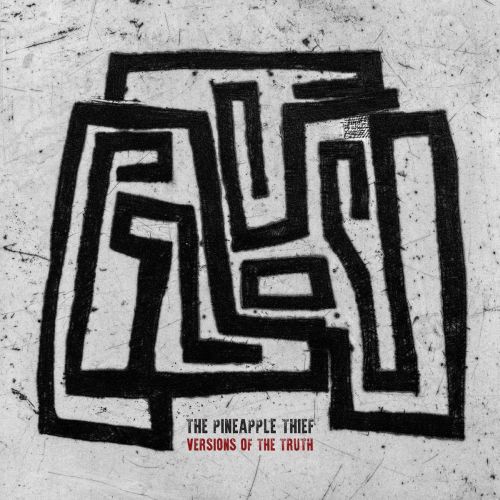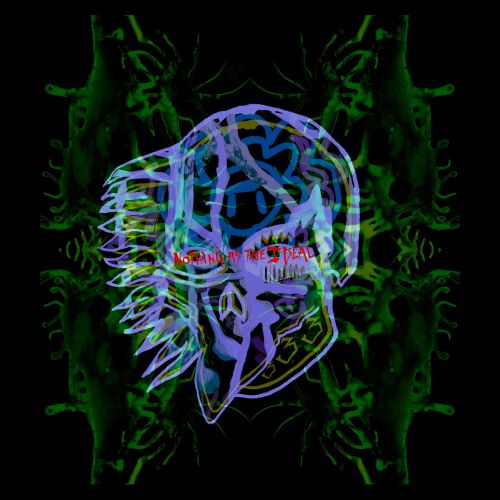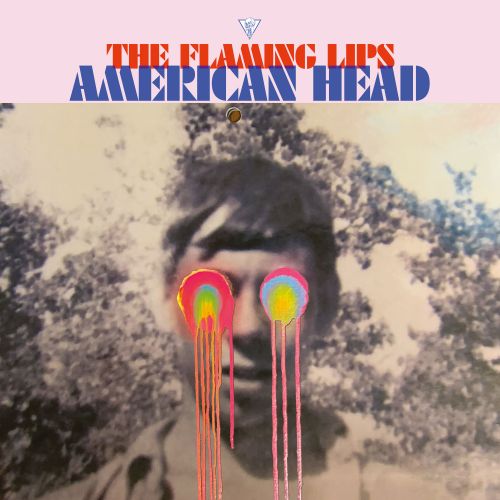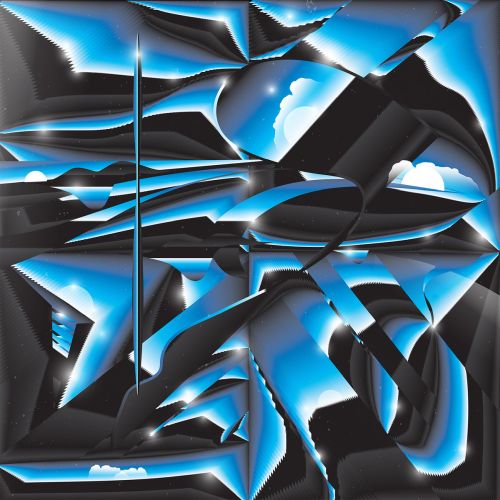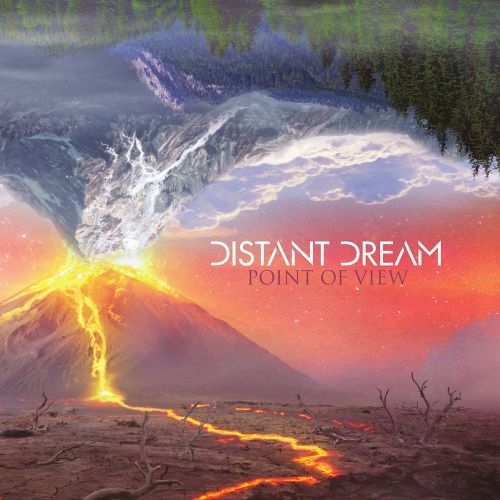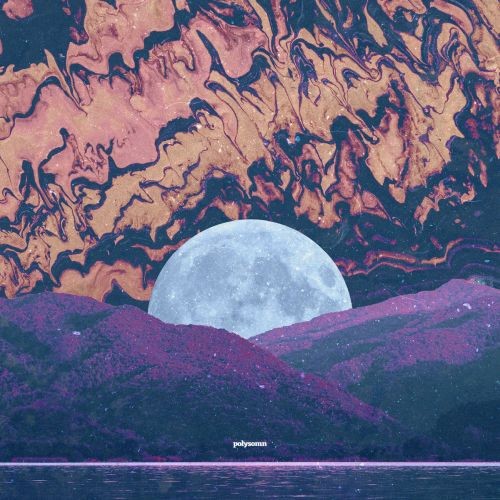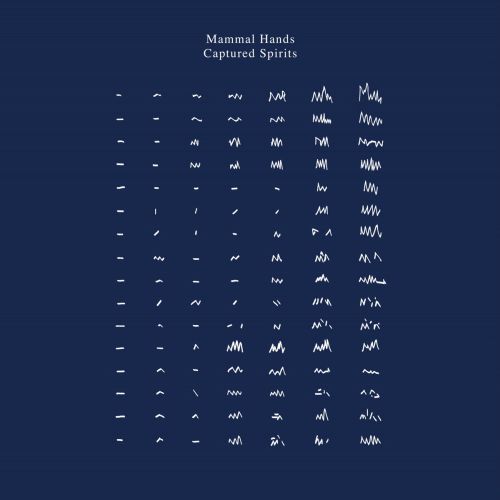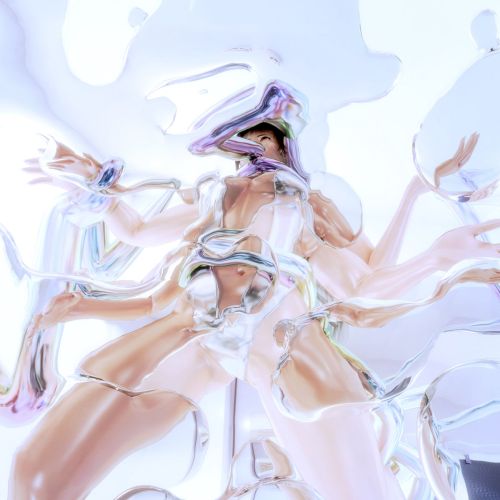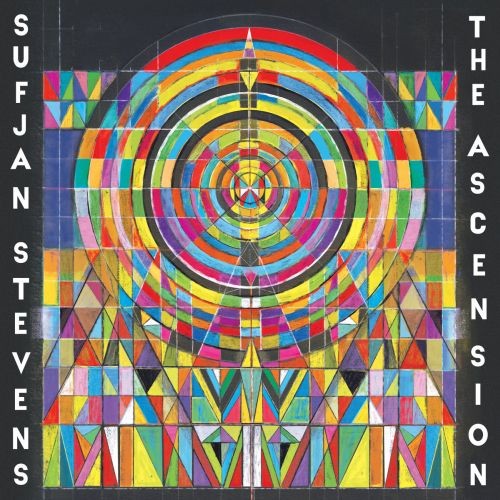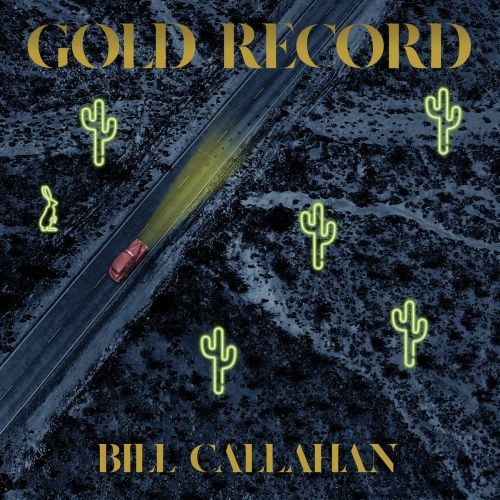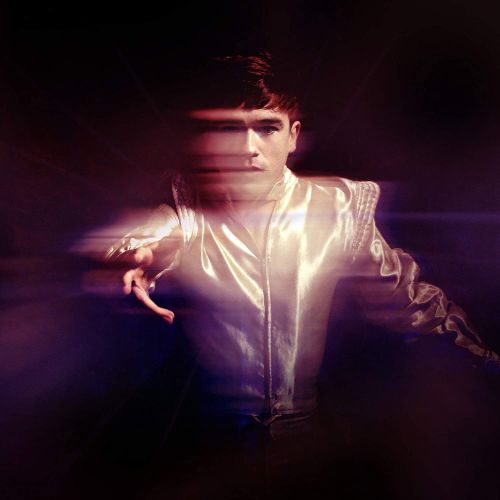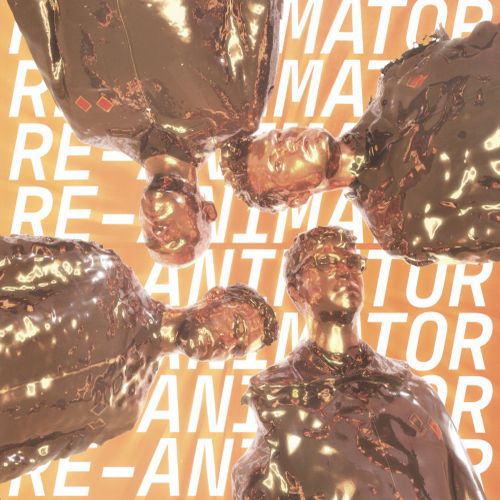Wait A Minute! This Isn't Metal! - September 2020

| Written by: | RaduP, musclassia, Abattoir, Troy Killjoy |
| Published: | October 12, 2020 |
Wait A Minute! This Isn't Metal! - September 2020
Metal Storm's outlet for nonmetal album reviews
The place where we'll talk about music without growls or blast beats
unless they still have those but still aren't metal
unless they still have those but still aren't metal
We here at Metal Storm pride ourselves on our thousands of metal reviews and interviews and article; metal is our collective soul and passion, which is why we bother with this junk. That being said, we'd be lying if we stuck to our trve-kvlt guns and claimed that metal is the only thing we ever listen to. Whether we want to admit it or not, we do check out some other stuff from time to time; some of us are more poptimistic than others, but there's a whole world out there aside from Satan-worshiping black metal and dragon-slaying power metal. We do already feature some nonmetal artists on our website and have a few reviews to back them up, but we prefer to limit that aspect of the site to those artists who have been a strong influence on the metal scene or who are in some way connected to it. This article series is the place for those artists who don't matter to metal in the slightest but still warrant some conversation - after all, good music, is good music, and we all know metal isn't the only thing on this planet for any of us.
Down below, you might find some obscure Bandcamp bedroom projects or some Billboard-topping superstar; as long as it ain't metal and the album itself isn't a best-of compilation, it fits. Obviously, we're certain that not everything will be for everybody (you guys can be viciously territorial even when metal is the only thing on the menu, and we're all supposed to like the same things), but we do hope you find at least one thing that you can enjoy, instead of just pointing and screaming in horror "Not metal!" as if that would be an insult.
Here are our previous features:
August 2020
July 2020
June 2020
And now to the music...
I'll be honest, with a name like Motorpsycho, I was expecting dirty desert rock, not sumptuously performed retro-prog, but here we go. The prolific Norwegian prog outfit are 30 years and a lot of albums into their career, and on The All Is One, my first encounter with the group, it appears that their prolific output comes through both with the number of albums they release and the quantity of music they fit on each album, as The All Is One clocks in at over 80 minutes. A mammoth undertaking, but one that is thankfully aided by the excellent quality of the music that comprises that hefty runtime. The title track kicks of proceedings with a lush classic prog cut; the vocals remind me of Yes more than anyone else, but the huge sound, soothing and convoluted instrumentation, and folky inclinations draw from a gamut of classic prog sounds, many of which they have doubtlessly contributed to the advancement of throughout their career.
The album features a number of other songs at either end, including the Genesis-inspired "The Same Old Rock (One Must Imagine Sisyphus Happy" and the more driven "The Magpie", but the focal point of The All Is One is the five-part 40-minute epic "N.O.X." in the middle of the album, and what a journey that song is. Beginning with an extended orchestral sequence, the transition as the bass takes over the driving role before it moves into more conventional prog territory makes an early statement that this will be a modern classic, and from there it goes on an odyssey that would require a review twice the length of this one to adequately describe. My personal favourite part of it is the longest, "Night Of Pan", a movement that is built upon use of extensive repetition and gradual development within that repetition to an almost suffocating degree, with thunderous drums and elliptical bass motif persisting until the tension is nigh-on unbearable, making the a release when they eventually move on all the more intense. It's a hard act for the rest of the album to live up to this, and unsurprisingly there isn't a song in the closing stages to rival the best parts of "N.O.X.", but that's fine; following something outstanding with something merely solid doesn't stop that latter item still being solid. The All Is One is an album you really have to set time aside for to fully enjoy, but it repays that commitment in spades.
Apple Music | Spotify
by musclassia
A mix of post-hardcore and slowcore isn't as inconceivable as it sounds, making it either the heaviest slowcore or the most fragile hardcore out there. Sprain do a bit of both, mixing them when necessary, but also being able to clearly favor one over the other. Having came out with an EP previous to this full length debut, here they manage to somewhat iron out both of the two sounds and the blend between them, and also expanding that a bit. As Lost Through Collision often sounds like either Unwound, Slint, Low or Fugazi, but a simple though experiment makes Sprain a heavy post-metal band but with no distortion and a lot more clean vocals.
It would be easy to imagine what As Lost Through Collision would sound like with distortion and (more) harsh vocals. Sure, a lot of albums would sound metal with distortion and harsh vocals, but Sprain make it so easy with the way they structure their songs and the way they write the sections, plus they already have some harsh vocals of their own. It's like the function of metal without its form... or something like that. But as it is, As Lost Through Collision can go from creepily slow quiet and fragile to aggressively dissonant quite effortlessly, sometimes going in either jammy or chaotic territories, but always maintaining its sense of atmosphere and emotional weight.
Bandcamp | Apple Music | Spotify
by RaduP
Neofolk has acquired quite a solid following in metal circles in the past decade or so; not that it hadn't crossed over with it prior to that (Agalloch covered Sol Invictus back in 2001), but the likes of Wardruna, Forndom and Heilung have really been co-opted by the metal community. Rome, the project of Luxembourger Jérôme Reuter, are well placed to be similarly welcomed, as a number of musicians of renown appear on The Lone Furrow; Alan Averill of Primordial, Nergal of Behemoth, Joseph Rowland of Pallbearer and more all lend themselves to what is the latest in a slew of releases from Rome since Reuter began the project 15 years ago, and listening to The Lone Furrow, it's clear to see how Rome acquired enough of a reputation to attract these guests.
Unlike the drone bases of the aforementioned Scandinavian groups, Rome's sound is acoustic guitar-oriented; after an atmospheric introduction, "Tyriat Sig Tyrias" opens with jangling acoustic strumming and deep, impassioned singing. There are similarities with those other bands, primarily through the percussion, as thudding, echoing drums move the song forward during the chorus. "Ächtung, Baby!", the song featuring Averill, is a more traditionally folk affair, with gentle, somewhat upbeat guitars and a self-assured vocal duet that embraces paganism. Nergal's feature song, "The Angry Cup", has a bit more of the droning background and mixed array of traditional percussion that Wardruna are so famous for, as well as a big group singalong in the chorus, making it one of the more memorable tracks from The Lone Furrow. Overall, whilst it leans a bit further towards acoustic folk than most of the neofolk I've found myself getting into in recent years, The Lone Furrow embodies much of the same spirit, even as it detours into subdued piano piece in "The Lay Of Iria", and those with a fondness for the style should make a point to give it a listen.
Apple Music | Spotify
by musclassia
I've always catalogued The Pineapple Thief under my head as a bit of a poor man's Porcupine Tree, what with being moody British prog rock bands with PT initials and similar sounds (and the recruitment of former Porcupine Tree drummer Gavin Harrison into The Pineapple Thief a few years ago only amplified the similarities), and whilst I've never really connected with The Pineapple Thief in the way I did with Harrison's Porcupine Tree albums, I did find what I did listen to from them to be at the very least passable and mostly enjoyable, whether on the soothing or more rock-oriented side of their sound. Versions Of The Truth is my first encounter with them in a while, and again, whilst it's a nice listen, it's not something that has me longing for more.
The title track sets the tone fairly early on; in addition to Harrison's reliably impressive, cymbal-oriented percussion, there's lots of space where keyboards and vocals drive the way, with distorted guitars popping up on in the choruses. The album certainly dabbles with heaviness, with some punchy riffs in "Break It All", probably one of the more memorable cuts here, but also has plenty of mellowness throughout, whether it's the piano/acoustic guitar/strings outro of "Demons", downbeat piano/acoustic-dominated "Driving Like Maniacs" or synth-heavy "Too Many Voices". The standout cut in the second half of the album is "Our Mire", comfortably the longest and proggiest track here, and one which covers an enjoyable amount of territory across its runtime. Possibly one thing that detracts from Versions Of The Truth is how soft track-dominated it is from "Driving Like Maniacs" onwards ("Our Mire" aside), meaning these later tracks start to blend together. Dispersing the harder songs like "Break It All" and "Demons" more evenly, as well as adding one or two more, might've stopped the record entering the lull that it falls into later on. Nevertheless, whilst it's not hugely exciting, it's a pleasant enough offering with a couple of really satisfying features, which pretty much describes all experiences I've had with The Pineapple Thief, so if you've been a fan before, there's a good chance you'll be on board with Versions Of The Truth as well.
Apple Music | Spotify
by musclassia
Post-punk is a pretty large umbrella term considering how many somewhat different bands fall under the term, some of which also sharing the gothic rock, new wave or synth punk tag. But a lot so much that it's mostly post little punk. Thankfully, we never had to worry about anything of the sort being the case with Idles, who manage to have the energy and rowdiness of punk, but still having the bounce and rhythm of post-punk. So pretty much their sound is less "dark" and more "angry". Angry post-punk, but even that anger is kind of a funny sarcastic one. They're pissed off about but there's gallows' humour about the entire ordeal. And that was the case for their previous two albums.
And pretty much it is the case for Ultra Mono, but something about it makes it feel more direct than its predecessors. The politics are pretty consistent with what we know of Idles, but here they're more in-your-face. And to address the elephant in the room, yes, that's pretty much what the album cover illustrates anyway, so it's glaringly obvious that it's supposed to be so. A lot of controversy around this album was about it either dumbing-down or using "sloganism", which I can sort of understand, but the strong no-wave influences of this album kinda go hand in hand with the lyrics being a bit more repetitive and direct. With the noisy and slightly hip-hop tinged production as well as the direct songwriting, safe to say that this one is pretty hard-hitting.
Bandcamp | Apple Music | Spotify
by RaduP
With the intense oversaturation of up-and-coming bands in the desert/stoner/psychedelic rock sphere, when one gathers some serious momentum, the question of what makes that band so special compared with their competitors immediately arises. I first heard of All Them Witches when I saw them right near the top of the poster for Desertfest 2019, billed above the likes of Earthless, Stoned Jesus and Naxatras. Interest piqued, I tried out a couple of songs, but didn't hear anything particularly ear-catching. With the release of a new album from the group, I decided it was time to give them another try; whilst I still wouldn't say Nothing As The Ideal is a standout release in this scene, it is a well-written, enjoyable and relatively wide-ranging effort.
All Them Witches traverse a number of approaches within the aforementioned genre umbrella on Nothing As The Ideal, most frequency playing a slick, mid-tempo, laidback style as appears on "Saturnine & Iron Jaw" and "See You Next Fall", a style that allows scope for some psychedelic jam tangents. Beyond that, there's a more up-tempo, driving desert rock sound on "Enemy Of My Enemy", an acoustic country music-heavy approach on "The Children Of Coyote Women" and a more muscular chug and ominous tone on "41", along with a more substantial departure in the form of "Lights Out", which takes major cues from more modern voices in alt rock, particularly on the vocal front. Across these different sounds, probably the one that is least distinctive when compared with the scene as a whole is that core approach on "Saturnine & Iron Jaw", "See You Next Fall" and to an extent "41"; however, it's probably the one All Them Witches deliver most effectively. I would be lying if I said my enjoyment of Nothing As The Ideal didn't fluctuate across its runtime, with "Lights Out" in particular not overly jiving with me. However, the most experimental song here, the lengthy, at-times droning closer "Rats In Ruin", turns out to be one of the highlights, undergoing a captivating metamorphosis as it approaches its grandstand conclusion, so All Them Witches do find some success when they branch out.
Bandcamp | Apple Music | Spotify
by musclassia
It's been a really long while since I've enjoyed a new Flaming Lips record. Though I only became a fan in the 2010s, so that means I already kinda inherited this sense that, after more than three decades as a band, the band was past its prime and wasn't really that much of a force to be reckoned with. Though some of the stuff released in the 2010s wasn't that bad, nothing could really come close to their excellent 1993-2009 run. American Head comes and shakes that ground a bit, not being really masterpiece level, but definitely elevating the band back to something to get a bit more excited about. It's quite ironic that the band achieves this by being more straight-forward and less experimental. At this point in their career, I can't blame them for returning to their older sound more and more, and with the speculative "jamming with Tom Petty's pre-fame band in the 70s" scenario, this really feels like an album of a band in a different head space.
Re-taking that oldie 60s LSD psychedelia with some jam rock, injecting a fair share of straightforward melancholic dream pop and making sure this definitely sounds like an album produced in modern times, American Head really feels a bit like that depressing death of the counter-culture and the American dream period, but it's not like I was there to witness it. But The Flaming Lips definitely do enough interesting things with the sounds they use to evoke that feeling, even if they're at their least experimental in a while, their chemistry and creativity is still quite undeniable. I can only hope they find better ways to manifest their experimental tendencies in the following decade, because I'd hate for this to be the only promising new Flaming Lips record in my time as a fan.
Apple Music | Spotify
by RaduP
Another year, another Oh Sees record. Oh wait, there are two more coming out this year? Let's see if I can squeeze something interesting to say about them. Regardless, Oh Sees, formerly known as Thee Oh Sees or OCS, are a jammy psychedelic garage rock band that has already gone past the 20th album (I've lost count), but being around since the late 90s, that's kinda expected. Not all albums are as good as others, but they don't really have anything I'd consider a classic, not anything that's much of a dud either.
Last year's Face Stabber, which I reviewed here was pretty good, but it was a massive 80 minutes. Protean Threat is entirely opposite at not even half the runtime. Though some of the jams can be longer, the shorter runtime makes it a bit more focused, though Oh Sees still have some lackluster and annoying moments sprinkled too. At this point it's kinda expected from it, but there's still more good than bad, and definitely a lot of unfocused energy.
Bandcamp | Apple Music | Spotify
by RaduP
In general view post-rock music representatives don't show nor express too much of technical and complex side within their music, yet they rather concentrate on creating the expansive atmosphere of pensive soundscapes with not only usual instruments but also other contributing elements (keys, samples, etc). Poland's Distant Dream, one-man project led by Marcin Majrowski, and Point Of View album tries to accumulate all these elements with various, sudden twists. Hastened tempo changes, the heaviness achieved with much more actively used and compact drums, and my favorite, extraordinary guitar work. From calm and usual post-rock vibes, striving towards emotional solos, sometimes melodic parts, and even more complex ones that can be related and connected rather to other rock/metal sub-genres.
The classic post-rock sound is always there, being challenged and pushed to the background on certain occasions, however never disappears throughout the whole aural adventure. This can be also associated with a high-level executed production. At the end of the day, Point Of View is not just another solid post-rock record, yet multi-layered progressively-tuned instrumental piece that brings out, with its complementing diversity of guitar riffs, to the surface a fair dose of emotions, mesmerizing ambient and undeniable talent of Marcin Majrowski. Distant Dream is not that distant after all.
Bandcamp | Apple Music | Spotify
by Abattoir
Featuring Niko Lehdontie of Oranssi Pazuzu, Kairon; IRSE! are far less extreme but comparably psychedelic when compared with their Finnish counterparts. Rather than operating on an extreme metal base, Kairon; IRSE! serve up a compelling blend of shoegaze, space rock and progressive rock, light in tone but with plenty of substance beneath the quirky synth melodies and high-pitched, reverbed vocals. The record leans more towards the shoegaze sound early on, with the influence of the likes of My Bloody Valentine nakedly clear on the likes of "Psionic Static" and "Retrograde", dynamic, layered tracks the excel when offering up a sheen of serenity or getting stuck into heavier alt-rock riffs. The psychedelic pop tendencies of some of these tracks would not make the group impenetrable to fans of more mainstream acts such as Tame Impala, but there is a certain oddness that becomes more prominent as the album progresses to help distinguish the group.
The proggier tendencies of the group first appear at the beginning of "Welcome Blue Valkyrie", with a very Pink Floyd-esque grandstand synth part and languid riff, and whilst the song as a whole may lean more towards laidback space rock, there are perkier songs to follow, in particular "An Bat None" and "Hypnogram". The former is a driving alt-rock piece with some zany synth motifs, the latter vibrant, huge-sounding and powered by memorable, overlapping synth melodies. There's also time for quieter contemplation courtesy of "Mir Inoi", not dissimilar to some of Steven Wilson's softer work, and "Altaïr Descends", an incredibly subdued and dreamy piece. With a winning mix of range, accessibility and quirkiness, Polysomn is perfect for those that enjoy their psychedelic music on the lighter side of the spectrum.
Bandcamp | Apple Music | Spotify
by musclassia
Hey! Did you know we have a forum thread for non-metal album recommandations? It certainly isn't the most active thread, certainly not as active as its metal counterpart. But I did end up visiting it a while ago and I was instantly struck by this cover art. And it did end up being one of the best decisions in a while, as this is definitely one of the most fun and dynamic jazz albums I've heard all year. Probably not the best, but I can't call Neptunian Maximalism or Idris Ackamoor & The Pyramids "fun".
And it's dynamic despite it not being that much of a complex album. I mean, all three are clearly great musicians, but they're always more interested in creating grooves and moods than in showcasing virtuosity. And for an album made by a trio to sound this lush they had to go all in on the grooves, sometimes a bit funkier, sometimes a bit moodier, their take on nu jazz does have just a bit of that oldie modal jazz, but it pulls some heartstrings without being cheesy, and can effortlessly change its tones from less serious to serious, and as much as it has emotional depth, it never feels grandiose. And sometimes you need some "smaller" jazz.
Bandcamp | Apple Music | Spotify
by RaduP
Following Jon Hassell last month in proving that age is just a number, 69-year-old Idris Ackamoor and his supporting ensemble The Pyramids have unleashed Shaman!, a vibrant, socially conscious spiritual jazz epic (clocking in at over 75 minutes) comprised of funk jams, lounge vibes, saxophone and flute virtuosity, and passionate spoken word. The album's title track is an appropriate mood-setter for the record, featuring chilled acoustic guitar and the first of several spoken word performances by Ackamoor during the album in its opening minutes, along with a rather ear-catching flute solo, before transitioning into a funk guitar groove augmented with African percussion, group singing and more jazzy flute. It's a long song, like several others on the album, but a fun and attention-grabbing one.
The vocals do catch the attention on certain songs, particularly "When Will I See You Again?" (perhaps pertinent in a COVID world, even if it was recorded before the pandemic was in full flight), with the title sung on repeat throughout whilst Ackamoor vocalizes about gun violence in the US, but more than anything this is an instrumental album. The instrumentals can be very impressive in the way they interact, whether it's the saxophone, flute and violin trio overlapping on "Eternity" or the synchronous sax/flute melody on "Theme For Cecil". Without being a broken record when it comes to jazz records, the more "instrumentally excessive" parts, shall I say, did certainly grate, whether it was the wild saxophone solos on "Salvation" (particularly the section where it gets very squeaky) or both the saxophone and flute contributions to "The Last Slave Ship", but outside of these moments, this instrumentals were chill and mellowing, making Shaman! a very pleasant listen for the most part.
Bandcamp | Apple Music | Spotify
by musclassia
"Tech house" was definitely not the first thing that came to mind when I saw the cover art of this album, but it's also not an aesthetic that doesn't fit. Instead I was expecting something more indie pop, which it partially is. At least much more so than most other house albums. To the point where there are songs that feel closer to the ambient pop side than the tech house one, but the bulk of it is still brooding electronic beats passed through a hazy dream pop filter. And more and more vocals this time around.
I was slightly more impressed with her self-titled debut, but this one does a better job of diversifying some of the sounds. Other than the bigger ambient pop presence, often manifested through the vocals, there's also the John Cale (of The Velvet Underground fame) feature, some trip-hop, and some songs that sound like oldie video game soundtracks. Overall the sound of Inner Song is very sweet and soothing, but it's dangerously close to being inoffensively and lacking the bite of the debut, which makes it somewhat less memorable and impactful without making it less fit for multiple background listens.
Bandcamp | Apple Music | Spotify
by RaduP
If that artwork looks a bit "hentai" to you, then you're bang on the money; Zora Jones has spoken about being drawn towards tentacle erotica due to "how obsessive the creators were", and being inspired to approach her own music with a similar level of perfectionism. When starting as an electronic music producer, she set herself the goal of writing 100 songs before releasing one, and endeavour that inspired the name of her debut EP 100 Ladies, which has eventually led to her debut full-length album Ten Billion Angels. The music here, in addition to sharing the pursuit of perfection of the aforementioned artwork, also resembles the scene featured on the cover in other ways, particularly its fluid, bright and futuristic sound.
Ten Billion Angels is concise, a collection of mostly brief offerings that together only just surpass the 30-minute mark, but whilst it does feel short, it doesn't feel undeveloped. The oscillating, irregularly rhythmic motifs featured in tracks such as the opener "Shadows To The Light" and "Sister's Blade" offer immediately and memorable yet somewhat alien hooks to go alongside the rumbling trap-inspired bass and glitching electronic effects that round out the songs. The vocals on the glitchier songs fall more towards the back of the mix, making distorted, wordless contributions to the likes of "Low Orbit Ion Cannon", but when featured up top on a song like "Paranoid", they are robotic and effects-laden. This track feels notably influenced by Japanese pop music; in contrast, the similarly vocal-heavy "I Wanna Lose You" features a far more high-pitched, brattish tone to the synthetic vocals. There's a reasonable degree of variety across this glitchy, bouncy, grime/trap-infused record, but aside from the slightly Kate Bush-ish closing track "Come Home", everything carries this bright, upbeat vibe, making the brief experience of listening to Ten Billion Angels a fun one.
Bandcamp | Apple Music | Spotify
by musclassia
It might be my relative unfamiliarity with a lot of the deeper cuts of the genre (namely pretty much all of them), but I've been quite on a Disclosure kick since this album dropped. I mostly listened to their other two full lengths to make sure I had some context to judge Energy by. All three albums have quite expansive deluxe versions which feature both extra songs and a bunch of remixes, which for a house album are pretty essential too. But if Settle and Caracal featured a lot of bigger names as guests, I'm rather unfamiliar with everyone guesting on Energy other than Slowthai and Common, and some of the other guests make me more eager than others to get familiar.
And like the previous two Disclosure albums, the full listen is pretty good, but also inconsistent enough to be much more worth just returning to the songs you liked. Thankfully there are plenty of those, so other than the interludes, there are only a couple of tracks I don't see myself returning to. Instead we have the high energy opener and title track, the absolute manic "My High" with Slowthai and Amine, and thankfully the album also sees less pop appeal and more color in the sound palette, best represented in the world (well, Western African) music on "Douha (Mali Mali)". In this sense, Energy is much closer to their promising debut than their commercial and disappointing followup, but for an album with its name I was expecting more... you know... energy, instead of a lot of "too chill for their own good" cuts.
Apple Music | Spotify
by RaduP
Wow, that is one striking cover art, simple yet effective. You can kinda tell what kind of mood this album would be going for, even though it doesn't get as harrowing as something like Lingua Ignota which it does seem like it could be similar too. I was recommended Sevdaliza's music by a friend somewhere around the time her debut album, Ison, came out. She had a bunch of other EPs too, so there was a lot to gather, and my assessment of weird fragile art pop is still somewhat valid. But its clear that there's a lot of growth that went into making Shabrang a more polished and mature work. Most in the sense that it managed to work the drawbacks that her previous work has had into strengths.
The Iranian/Dutch artist is far from the best singer out there, so it's clear that the soft and quiet vocals aren't something that you can always put in the foreground of a song, but instead she uses them for the mysterious emotional impact that works with the subdued instrumentation. A lot of the album is focused on strings and pianos often blended with either old school trip-hop or alternative R&B to create an ethereal and introspective vibe. This is definitely a nighttime album, where the sparse instrumentation makes sense and makes everything feel much more resonant, from the often heavily autotuned vocals to its diverse beats. And I mean, it goes from trip-hop to trap to art pop to darkwave to chamber music to Persian folk quite effortlessly, all of it to paint this picture of a dark world getting darker.
Apple Music | Spotify
by RaduP
Having decidedly proven his unique ability to cover the spread of various singer-songwriter sub-genres and related pop-oriented material throughout his illustrious 20-year career with a brilliance matched by an elite few in the indie scene, Sufjan Stevens veers away from his bittersweet folk roots in exchange for some soothing multi-layered electronic soundscapes, with smatterings of glitch elements and downtempo atmospheric melody thrown in for good measure. The Ascension is a beatific exploration of previously uncharted territories for the New York-based existentialist, imparting levels of peaceful bliss not heard since the almost condescendingly uplifting Illinois back in 2005.
At times morbidly pleasant, this synth-soaked conceptualization of life and the beyond and the personal development of consciousness required to access realms of greater significance is deftly handled with an organic production quality, drawing in the listener with lush textural beats that rarely push beyond mid-tempo, buoying Stevens' subdued vocal efforts and accompanying his higher range with precision and clarity. It's an incredibly immersive experience and another in a long line of immense undertakings, closing with an ethereal conclusive outro that perfectly encapsulates what The Ascension is all about.
Bandcamp | Apple Music | Spotify
by Troy Killjoy
I was surprised to see that there was a new Angel Olsen coming so soon after last year's All Mirrors, which we talked about here, but it all made sense when I found that Whole New Mess is actually the demo/stripped-back versions of the songs from All Mirrors. I can't say I liked the original album that much, as least not as much as 2016's My Woman, enough to be looking to hearing multiple versions of those songs, but even though this feels pretty unnecessary, it's still a worthwhile listen.
These being stripped-back versions makes these feel a bit more personal in a way than the slightly more grandiose orchestrations from All Mirrors, and this wouldn't have worked as well if Angel Olsen didn't already start out as a folk singer first and foremost, so her penchant for vocals + acoustic guitars + reverb was already there. The familiarity I had with the songs helped in a way, because the simple nature of the album did turn it to be quite monotonous, but, as I said, she makes it work. However you can also kinda tell that these are demo versions, and the raw and unpolished aspect can be cool, but the unfinished one not as much. Overall, I'm still more likely to return to the original versions, but who knows when I'll be in the mood for this too.
Bandcamp | Apple Music | Spotify
by RaduP
Bill Callahan, who also performed under the Smog name, always occupied the same space in my mind that Jason Molina (aka Songs: Ohia/Magnolia Electric Co.) and Will Oldham (aka Bonnie 'Prince' Billy) also do, as these dark and emotional and sometimes sarcastic takes on folk music, but on this record I am most reminded of the latest Matt Elliott, not only because Bill's voice is more of a warm baritone like Matt's than either Jason's or Will's, but also because of it reminding me of an Americana version of Leonard Cohen.
In Bill's defense he sounds less like Cohen than Matt does. And he introduces the record by pretending to be Johnny Cash. Anyway, Gold Record has more of a twang than what I've heard from Bill previously, and while most of it is just him doing vocals and acoustic guitars with some slight percussion and bass and something else to add some texture, its simplicity does work in its benefit due to how warm his vocals are and how great his storytelling and lyricism is, as a man with much more years under his belt than the man who started Smog all those years ago. Warm, comforting and laid-back, like a man who has some of it figured out.
Bandcamp | Apple Music | Spotify
by RaduP
It would be extremely hypocritical for me to praise OSDM and criticize other musicians for borrowing heavily from the past, because in all likelihood a lot of the types of music that can be done, have been done, so to be original you'd have to be really out there with the way you find new ways to make music. And with all of the music that inspires you not really doing that, can anyone blame Declan McKenna for liking David Bowie and The Strokes so much? Definitely not the worst acts to pick from.
Maybe The Strokes aren't exactly the most representative act for the indie rock sounds of Zeros, but the glam rock ones absolutely sound a lot like David Bowie, with bits of Elton John or New York Dolls, with some new wave for good measure. Glam rock is definitely a sound you don't hear often nowadays, so a bit of a throwback record that is trying to avoid being too derivative by blending with indie rock is certainly not unwelcome, and the production and performance does have just enough bite and memorability to make it somewhat interesting beyond that.
Apple Music | Spotify
by RaduP
I too like Radiohead. But Everything Everything definitely love Radiohead. This isn't to say that their sound is a complete rehash, but still wearing the influence on the sleeve a bit too obviously. Which would've been a hefty thing on the first or second or even third album, but at the fifth album I was hoping Everything Everything would've been more successful at moving past the obvious worship. In their defense, they sound a lot more like Muse, because Muse were already the progressive pop version of Radiohead, and Everything Everything move things even more in a new wave / indie pop direction. They seem to have struck it big with 2015's Get To Heaven, which was admittedly a batch of great bangers, but it seems like something fizzled out, since I can also see other folks having lost interest in the band since, even if their sound didn't change all that much.
Part of it must have to do with how Get To Heaven was not only serving a sort of promise that Everything Everything would only continue to mature their own sound instead of sounding too close like their influences, but even when they did, they seemed to have a better mastery of their craft in making those moments more memorable. And yet, Re-Animator doesn't sound that far off. It's still in the progressive art pop rock, and it's clear that even if it sounds too close to something else for its own good, the band still has the chops to fill the album with interesting moments enough that part of me thinks that this is the best Muse album since The Resistance, and that maybe I'd be a little more open to their music if my mind didn't instantly echo to someone else, and if the production wasn't as compressed. And after Radiohead is indeed one of the best bands to imitate, especially if you can nail the croon and the synth atmospheres.
Bandcamp | Apple Music | Spotify
by RaduP
And that was it. You've made it through still alive. Congrats. See ya next month.
Comments
Comments: 8
Visited by: 65 users
| Moose |
| JoHn Doe |
| musclassia Staff |
| jaunt Posts: 8 |
| musclassia Staff |
| Rufus Valentine Account deleted |
| RaduP CertifiedHipster Staff |
| Rufus Valentine Account deleted |
Hits total: 3933 | This month: 39




